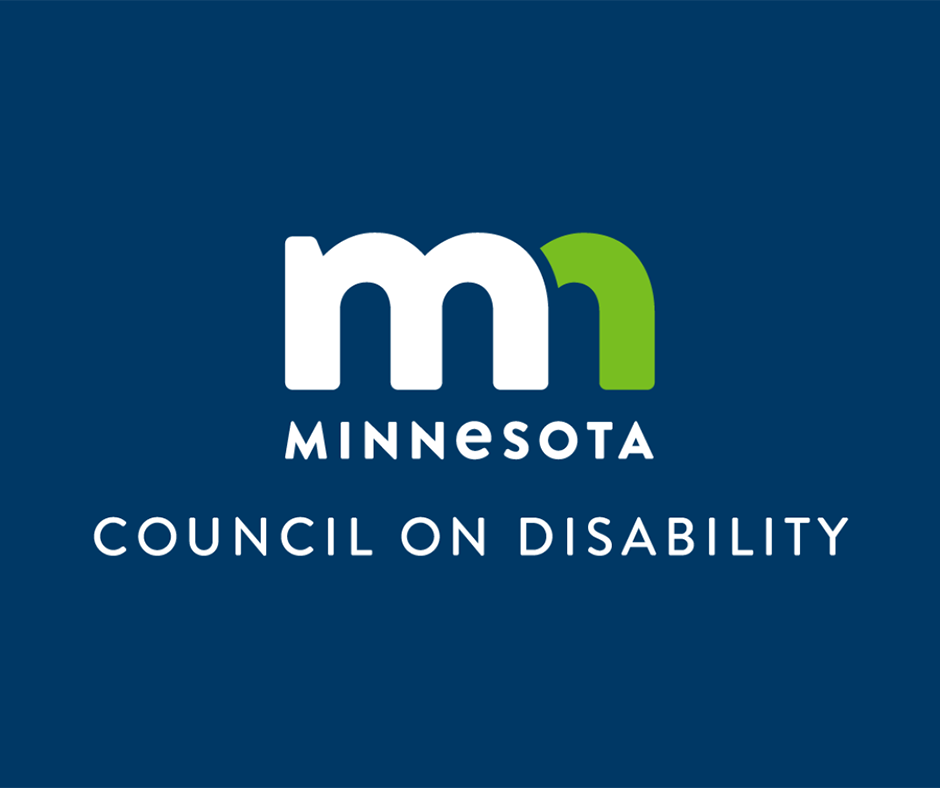
The MCD Governing Council adopted its 2025 Legislative Agenda to advance equity, accessibility, and inclusion for Minnesotans with disabilities. The agenda focuses on important issues including transportation, healthcare, human rights, and community integration. It aims to remove barriers, protect essential services, and promote policies that enable people with disabilities to live independently and thrive in their communities.
1) Accessible Transportation Network Companies (TNCs) & Taxis
Transportation options for individuals using wheelchairs and scooters remain severely limited across the state, with ride-sharing services almost entirely inaccessible. This policy proposes adding more accessible vehicles to both TNCs and taxi services through tax incentives and grant opportunities for drivers of WAVs, ensuring people with disabilities can reach essential destinations like work, school, and grocery stores.
2) Inclusive Playgrounds
The MCD will champion efforts to develop inclusive playgrounds that welcome children of all disabilities. These playgrounds must feature accessible equipment, sensory-friendly spaces, and universal design principles to foster meaningful play experiences. Investing in inclusive playgrounds ensures that children with disabilities have equal opportunities to interact, grow, and thrive alongside their peers.
3) Bud Rosenfield Act – MHRA Amendment
The Bud Rosenfield Act seeks to amend the Minnesota Human Rights Act to strengthen protections for people with disabilities. This proposal focuses on advancing integration, accessibility, and choice in critical areas like housing, employment, and public accommodations. By reinforcing these rights, the act will promote equity and inclusion for individuals with disabilities across Minnesota.
4) MA-EPD Premium Elimination
MCD supports the elimination of premiums for participants in the Medical Assistance for Employed Persons with Disabilities (MA-EPD) program. Premiums present a financial barrier that discourages workforce participation and economic independence for Minnesotans with disabilities. By removing these premiums, we will empower individuals to seek employment opportunities without the fear of losing essential health care coverage.
5) MNChoices Assessment Renewal
The current requirement for annual MNChoices assessments can be exhausting and traumatic for individuals with disabilities and their caregivers, with assessment wait times often exceeding statutory limits. This proposal would allow Home and Community-Based Services (HCBS) recipients to opt for assessments every three years instead of annually, reducing strain on both individuals and county resources. By adopting this change, Minnesota can streamline the assessment process while ensuring continuity of care for those whose disability status remains unchanged.
6) Disability Services & Rights Preservation
MCD is committed to protecting the fundamental rights of people with disabilities by opposing cuts to critical services and ensuring adequate funding for disability programs. This includes maintaining access to personal care assistance, housing support, and employment services. Preserving these rights is vital for fostering independence, dignity, and quality of life.
7) Community Advocates & Partner Priorities Support
The MCD will collaborate with disability advocates and partner organizations to support their legislative priorities. We aim to amplify diverse voices within the disability community and promote policies that reflect their lived experiences. By aligning efforts, we can collectively advance equity and inclusion for Minnesotans with disabilities.
Have Ideas for a Future Legislative Agenda?
It’s never too early to start discussing future Public Policy Agendas. Many items on our Public Policy Agenda are a culmination of years of work and many meetings with stakeholders. They are supported by a coalition of disability advocates. If you are interested in proposing a disability issue that you believe should be on a future public policy agenda, please contact David Dively at david.dively@state.mn.us or 651-361-7801.